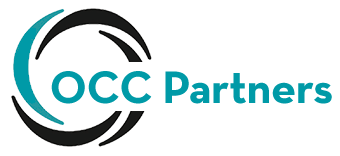The Real Truth About References
 You’re almost to the finish line, now for the references. The final stages of your job search and you’re close to an offer. You’ve created a strong resume, you love the company, and all your interviews went well. Now they’ve asked for references. While the resume and strong interviewing skills got you to this point, the results of the reference checks can make or break your getting an offer. Let me repeat that! What your references say…can make or break whether you get an offer. Good references are a must!
You’re almost to the finish line, now for the references. The final stages of your job search and you’re close to an offer. You’ve created a strong resume, you love the company, and all your interviews went well. Now they’ve asked for references. While the resume and strong interviewing skills got you to this point, the results of the reference checks can make or break your getting an offer. Let me repeat that! What your references say…can make or break whether you get an offer. Good references are a must!
So, who have you asked to provide references? And, who should you ask to provide a reference? People who know your work well, and can tell your story effectively. Good references confirm to the potential employer that you’re a great choice.
Get references ready before your first interview.
Even before you start interviewing, you should develop a list of peers, customers (internal or external), and supervisors/managers who will best articulate your strengths and accomplishments. Make sure you have at least three people you’ve worked with who can speak to your experience and strengths.
Never ask someone to be a reference if you aren’t extremely confident they are going to give you a positive reference.
What if you’re currently employed and don’t feel comfortable asking your boss?
If you don’t or didn’t have a good relationship with your boss, and most people seeking a new job are in that situation, then provide a previous boss, peers at your current company, or other individuals you’ve directly worked with at the company that you trust to provide a strong reference. But remember, if you provide individuals at your current company, you should explain why they can provide a valuable recommendation. For instance, perhaps your boss didn’t have visibility to your day-to-day work, but other individuals you worked with on projects had that day-to-day line of sight, then use them.
What to do before you provide a list of references?
 Contact your references right before you give them to anyone, make sure they’ll be accessible and anticipating contact from the potential employer. It’s important to notify your references that they may get contacted. Provide them details about the role, a copy of your resume, which of your strengths fit best in the new role, and what points can they address to the prospective employer to help you win this job. Advise them how they can be the most impactful in supporting you. Each reference you use will provide a slightly different picture of you, so by providing them insight on what you’ve learned, you help prepare your references to give you an exceptional reference and support what you said in the interviews. Tell your references why you want the new role and why you think it’s a good fit for you.
Contact your references right before you give them to anyone, make sure they’ll be accessible and anticipating contact from the potential employer. It’s important to notify your references that they may get contacted. Provide them details about the role, a copy of your resume, which of your strengths fit best in the new role, and what points can they address to the prospective employer to help you win this job. Advise them how they can be the most impactful in supporting you. Each reference you use will provide a slightly different picture of you, so by providing them insight on what you’ve learned, you help prepare your references to give you an exceptional reference and support what you said in the interviews. Tell your references why you want the new role and why you think it’s a good fit for you.
What do you do if your company’s policy is not to provide references?
Many companies are choosing not to provide a formal reference, but may provide the dates you were employed and your role, nothing more. If that’s the case at your company, you’ve still got customers, peers, and previous bosses who can be used to make sure you’ve got a list of strong references.
What to do if this is your first position?
 You’re not alone, everyone starts this way. First, remember you’re talented and are on the right track…that’s what’s gotten you this far. But, if don’t have professional work references, provide references who can speak to your commitment and follow-through, such as professors who witnessed your class participation and performance, team members you worked with to complete a project, or people who worked with you in volunteer roles. If you have had an internship, then individuals you worked with at the internship can provide great references. It isn’t as important who’s name or role you provide the prospective employer, as what they say about you and if they can say it because of experience with you in a situation where you had to get something done.
You’re not alone, everyone starts this way. First, remember you’re talented and are on the right track…that’s what’s gotten you this far. But, if don’t have professional work references, provide references who can speak to your commitment and follow-through, such as professors who witnessed your class participation and performance, team members you worked with to complete a project, or people who worked with you in volunteer roles. If you have had an internship, then individuals you worked with at the internship can provide great references. It isn’t as important who’s name or role you provide the prospective employer, as what they say about you and if they can say it because of experience with you in a situation where you had to get something done.
What you should do after you’ve accepted the offer.
Circle back to your references and thank them! Let them know you’re excited about the new role and you appreciate their support. A personal phone call is always the best option, but a text or an e-mail will work, just do it shortly after they’ve provided the reference and you’ve accepted the job offer.
Congratulations, you’ve made it this far and done well and now you’re on your way to an exciting new opportunity!









